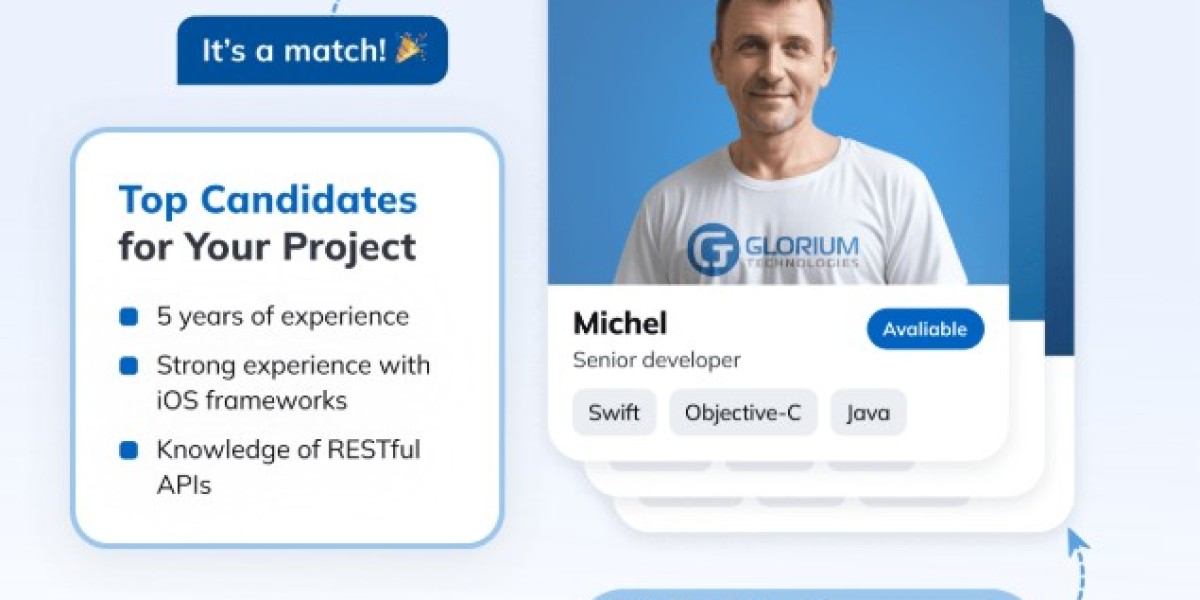Hiring a skilled Swift developer is one of the most important decisions you’ll make when developing an iOS mobile application. Swift is the primary programming language used to develop iOS applications, and it provides a powerful, intuitive platform for building fast and efficient apps. However, the hiring process for Swift developers can be tricky, especially if you're not well-versed in the specifics of mobile development.
In this article, we’ll highlight the most common pitfalls companies face when hiring Swift developers and offer tips on how to avoid them. From identifying the right skills to managing expectations and aligning goals, we’ll guide you through the process to ensure that you hire a Swift developer who can bring your vision to life.
1. Failing to Define Your Project Requirements Clearly
One of the biggest mistakes many companies make when hiring a Swift developer is not having a clear understanding of their project requirements from the outset. Without a solid plan, it can be difficult to identify the exact skills and experience needed for the role.
Before you begin your search for a Swift developer, it’s essential to define:
- The project scope: What features and functionality does your app need?
- Target audience: Are you developing for iPhone, iPad, or both? Will the app also need to work on different screen sizes or versions of iOS?
- Timeline: How soon do you need the project to be completed?
- Budget: How much are you willing to invest in the development process?
Clearly communicating these elements to potential candidates will allow you to identify developers with the right skills and expertise for the job.
2. Overlooking Experience with iOS-Specific Frameworks and Libraries
While Swift is an essential language for iOS development, it’s also important that the developer has experience with various iOS-specific frameworks, libraries, and tools. Some of the most crucial frameworks that a Swift developer should be familiar with include:
- UIKit: The user interface framework used to build iOS apps.
- Core Data: A framework for data modeling and storage.
- Core Animation: A powerful animation framework for iOS.
- CloudKit: A cloud-based framework for managing data across devices.
If the developer lacks experience with these frameworks, you may encounter issues down the line with performance, scalability, or the functionality of your app.
To avoid this pitfall, make sure to assess the candidate’s familiarity with these essential tools during the interview process. Ask for specific examples of projects where they have used these frameworks.
3. Not Evaluating the Developer's Problem-Solving Skills
Swift developers must be able to solve complex technical problems efficiently. They should have the ability to troubleshoot issues quickly and find optimal solutions. It’s crucial to evaluate their problem-solving skills as part of the hiring process.
A great way to assess problem-solving ability is by providing a coding challenge during the interview. This challenge should simulate a real-world issue that your team might face during development. By analyzing how a candidate approaches the problem, you can gauge their ability to think critically, identify potential bottlenecks, and implement efficient solutions.
4. Ignoring the Developer’s Familiarity with App Store Guidelines
If you are hiring a Swift developer for iOS app development, it’s essential that the developer is well-versed in the Apple App Store guidelines. Apple has strict rules regarding app submission, and failing to follow them can result in your app being rejected from the App Store, causing delays and additional costs.
An experienced Swift developer should have a strong understanding of:
- User privacy and data security: Ensuring that your app complies with regulations like GDPR and Apple’s App Store policies on user data.
- App review guidelines: Understanding the nuances of Apple’s review process, including technical requirements like the use of private APIs and app performance standards.
- App Store Optimization (ASO): Knowing how to optimize your app’s metadata for better discoverability on the App Store.
When interviewing candidates, ask them about their experience navigating the App Store submission process. This will help you determine if they are capable of delivering a polished, production-ready app that meets all necessary guidelines.
5. Overemphasizing Technical Skills Over Soft Skills
While technical expertise is crucial when hiring Swift developers, soft skills should not be overlooked. In mobile app development, collaboration and communication are key factors for success. Developers must work closely with project managers, designers, and other team members to ensure that the app is developed according to plan.
Some soft skills to look for in Swift developers include:
- Communication: Can they explain technical concepts to non-technical stakeholders?
- Collaboration: Are they comfortable working in a team environment and contributing to brainstorming sessions?
- Adaptability: How well do they handle changes or challenges in the project?
A good Swift developer should be both technically proficient and able to work well within a team dynamic. To assess their soft skills, consider including behavioral interview questions that focus on teamwork, conflict resolution, and problem-solving.
6. Neglecting to Check Their Code Quality and Portfolio
One of the most important aspects of hiring a Swift developer is evaluating their previous work. You should never hire a developer without first checking their portfolio or code samples. Reviewing a candidate’s code can give you a clear picture of their development style, adherence to best practices, and attention to detail.
Here are a few key things to look for when evaluating code:
- Code readability: Is the code well-organized and easy to understand?
- Code efficiency: Does the code execute efficiently without unnecessary complexity?
- Testing: Has the developer incorporated unit tests to ensure the reliability of the app?
- Version control: Does the developer use version control systems (e.g., Git) to manage the codebase?
If the candidate has worked on apps that are similar to your project, this will give you a better idea of how they handle specific challenges within iOS app development.
7. Failing to Account for Ongoing Maintenance and Updates
Once the app is developed and launched, the work is far from over. Regular updates and maintenance are essential for keeping your app running smoothly and ensuring that it remains compatible with future versions of iOS.
When hiring a Swift developer, consider whether they offer post-launch support. Do they have experience handling app updates, bug fixes, and other ongoing maintenance tasks?
It’s also essential to ensure that the developer can help you with app scalability. As your user base grows, your app may need to be updated with new features, optimized for performance, and tested across different devices and iOS versions. This ongoing support will be crucial for the long-term success of your app.
8. Underestimating the Importance of Security Knowledge
Security is one of the most important aspects of iOS app development. With the increasing prevalence of cyberattacks, it’s crucial to ensure that your app is secure, particularly if it handles sensitive data, such as personal information or payment details.
When hiring a Swift developer, make sure they understand the key principles of mobile app security. This includes:
- Data encryption: Ensuring that user data is securely stored and transmitted.
- Authentication protocols: Implementing robust authentication systems such as multi-factor authentication.
- Secure coding practices: Writing code that minimizes the risk of vulnerabilities, such as SQL injection or cross-site scripting (XSS).
Ask candidates about their experience with security best practices in iOS development, and make sure they are familiar with the latest security guidelines provided by Apple.
9. Not Aligning Expectations with the Developer
Misaligned expectations between you and the developer can lead to frustrations and project delays. Make sure that you and the developer are on the same page regarding:
- Deliverables: What specific tasks and milestones are expected, and when should they be completed?
- Communication: How often will you be communicating, and through which channels (e.g., email, Slack, meetings)?
- Budget: Are you clear about the financial terms of the project, including any potential additional costs?
Setting clear expectations up front will help avoid misunderstandings and ensure that the development process goes smoothly.
Conclusion
Hiring the right Swift developer is critical to the success of your mobile app development project. By avoiding common hiring pitfalls such as vague project requirements, ignoring security concerns, and failing to assess problem-solving skills, you can increase the likelihood of finding a developer who will meet your needs and deliver high-quality work.
Remember to prioritize clear communication, evaluate both technical and soft skills, and ensure the developer’s experience aligns with your project’s goals. By following these guidelines, you can hire the best Swift developer for your mobile app and create an app that will delight users and drive business success.
If you're looking to hire swift developer with the expertise and experience to bring your iOS app to life, make sure to partner with a trusted development agency or seek out top-tier talent through specialized hiring platforms.
Naijamatta is a social networking site,
download Naijamatta from Google play store or visit www.naijamatta.com to register. You can post, comment, do voice and video call, join and open group, go live etc. Join Naijamatta family, the Green app.
Click To Download


